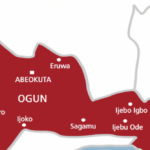
By Hamisu Muhammad
The take off of dry ports in the hinterland of the country may face fresh delay as the government has engaged a new consultant to handle the development of a new policy for the process.
Initially, the concept of the dry ports was approved by the Federal Executive Council in 2003, during the tenure of President Olusegun Obasanjo, and later in 2006 the concession rights was awarded to some companies to commence the project in Ibadan, Abia, Jos, Funtua, Kano and Maiduguri.
However, after the initial celebration of the concession rights, none of the projects has seen the light of day 12 years after the agreement was signed between the concessionaires and government.
There have been series of blame games between government officials and some stakeholders for a very long time over the delay of the take off, which has deprived the economy of the landlocked states of many opportunities.
Recently, the government, through the regulator- Nigeria Shipper’s Council, announced a consultant that would draft a new national policy on Inland Dry Ports, the development that some stakeholders consider as a setback for Buhari administration‘s diversification policy .
A letter dated 05/07/17, signed by A.N Makinde, Director, Inland Transport Services, Department said “We wish to inform you that the Council has awarded the consultancy for the drafting of National Policy on Inland Dry Port (IDP)and Truck Transit Parks (TTP) for the Country to Messrs Halcrow Infrastructure.”
Why the dry ports?
The concept of Inland Dry Ports or land ports allows hinterland shippers; particularly those in the northern part of the country, to clear their cargoes at the various inland ports near their locations. Such shippers have no business to travel to Lagos or other coastal areas to clear their cargo.
The idea of the dry ports was seen as a veritable platform to decongest the sea ports, reduce clearing bottlenecks, ease doing business, generate employment, diversify the economy, reduce stress on highways and open the hinterland economy to the world.
The Minister of Transportation, Mr. Rotimi Amaechi, said recently that the contribution of the maritime sector in particular and the transport in general to the Nigerian economy was very low in spite of the potentials the sector held. He, therefore, reiterated government’s plan to tap from such potentials.
The Chairman of Dala Inland Dry Port Nigeria Limited, Ahmed Rabiu, one of the concessionaires, said with the opening of dry ports in the hinterland, the maritime sector would grow and provide opportunity for many Nigerians to participate and export agric produce with ease.
Sources of delay:
Daily Trust investigations revealed that there were many aspects of the delay in the take off of the Inland Dry Port. Key among them being lack of commitment by the political leaders. For instance, after the approval by the Federal Executive Council for the dry port concept in year 2003, it took government another three years up to 2006 for the relevant Concession Agreements to be signed. Since then, there were several shifts in policies by different administrations which in return slowed down the investors’ confidence. Rabiu told Daily Trust that the federal government has a number of specific required performances, but, regrettably it did not meet its own part agreement timeously and while the concessionaires were suffering a lot of frustrations and loss of resources, due to the changes in the headship of the Ministry for Transportation, the authorities are busy changing the rules.
Rabiu said that they were also surprised with the appointment of the new consultant and hope it will not lead to any impossible situations. Saying that what is more important at the moment is for government to grant the approval as the port of origin and destination for the already existing dry ports.
He said the delay in the granting of approval as port of origin was behind the present predicament of most concessionaires as their partners are not willing to participate in the development of the Dry Ports without such approval.
However, Barrister Hassan Bello, Executive Secretary of the Nigeria Shippers’ Council, said some changes in the policies were needed to avoid the mistake done in the past.
Speaking to Daily Trust, Bello whose agency is the regulator of the Dry Ports, said the concessionaires needed to prove beyond doubt that they had investment on ground before government gave them approval as port of origin.
Bello said international regulators such as International Maritime Organisation would not take Nigeria as a serious country if they began to grant approval as ports without necessary infrastructure on ground by the concessionaires.
When asked of this development, Rabiu said that the project is a Greenfield project and that they have adequately informed the regulators that both their partners and Bankers need to be comforted that they are investing and or partnering in an Inland Dry Port and the only thing to give them that comfort is a declaration and gazetting of the relevant locations. He added that he is well aware that even after declaration and gazetting, international cargo movement regulators, FIATA and IMO will have to certify the places as suitable for import and export of cargo before they can commence operations after putting all structures in place and providing equipment. He said Kaduna that came through the window some two years ago is yet to be certified by both FIATA and IMO.




